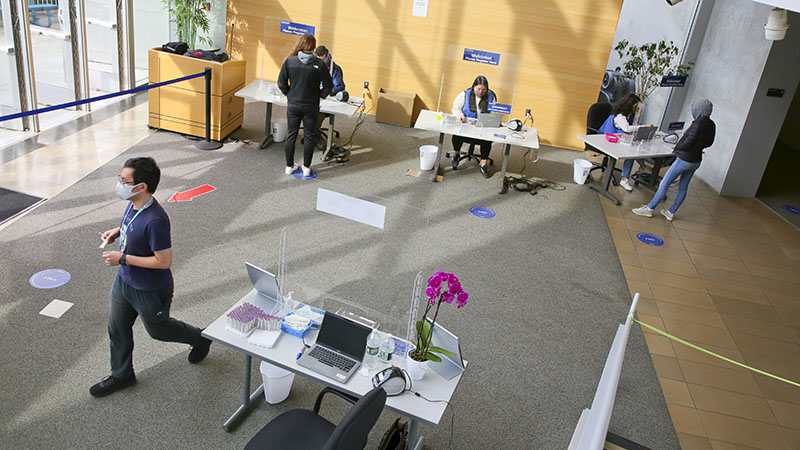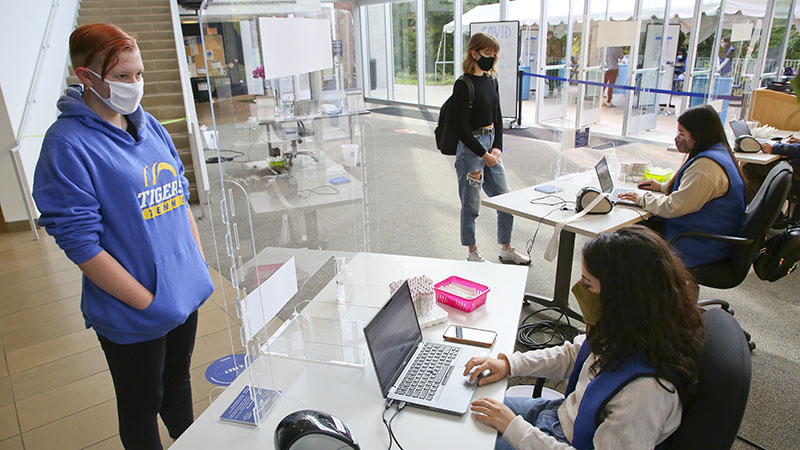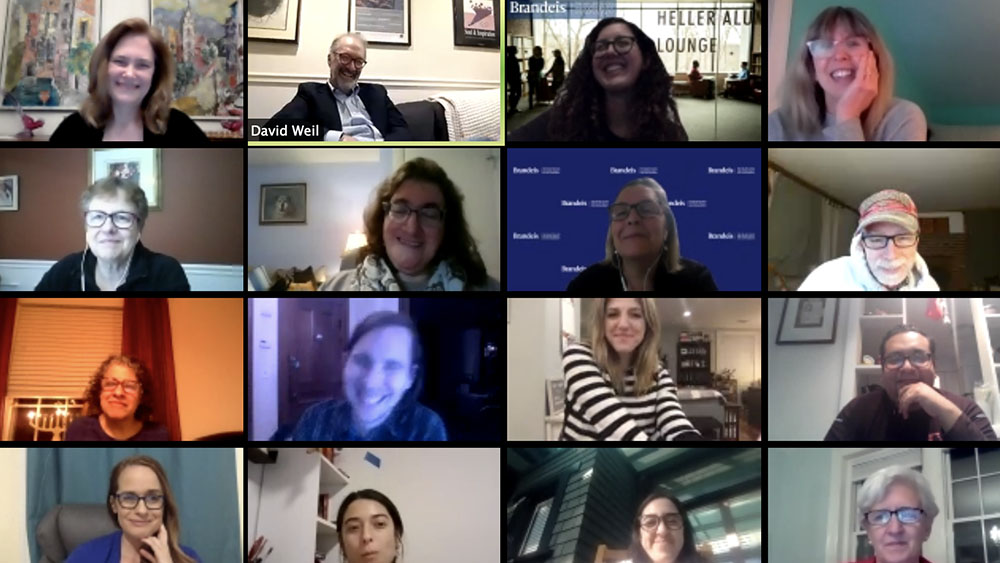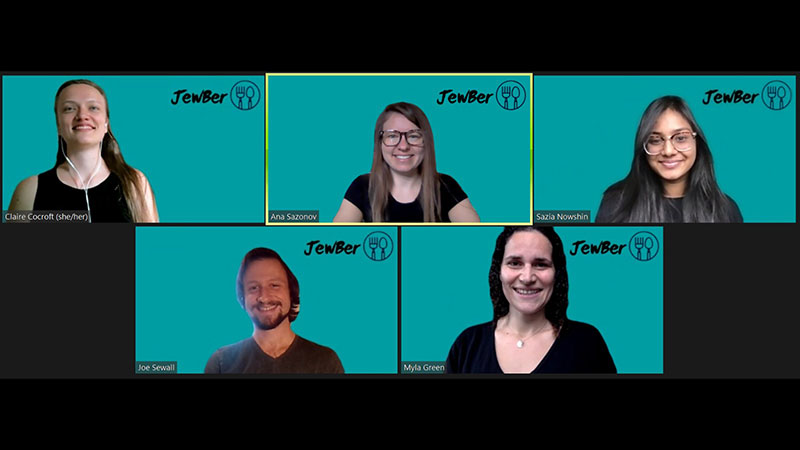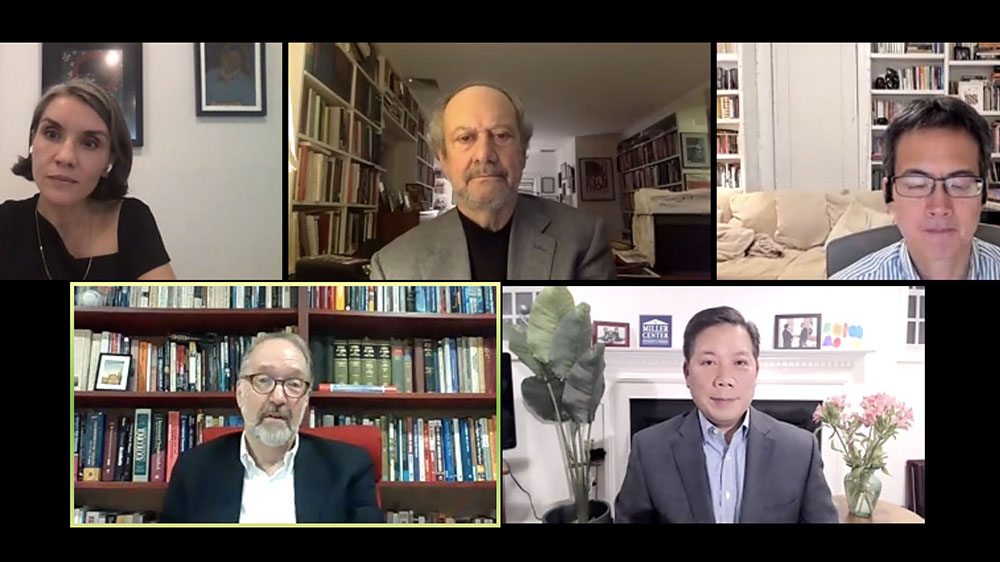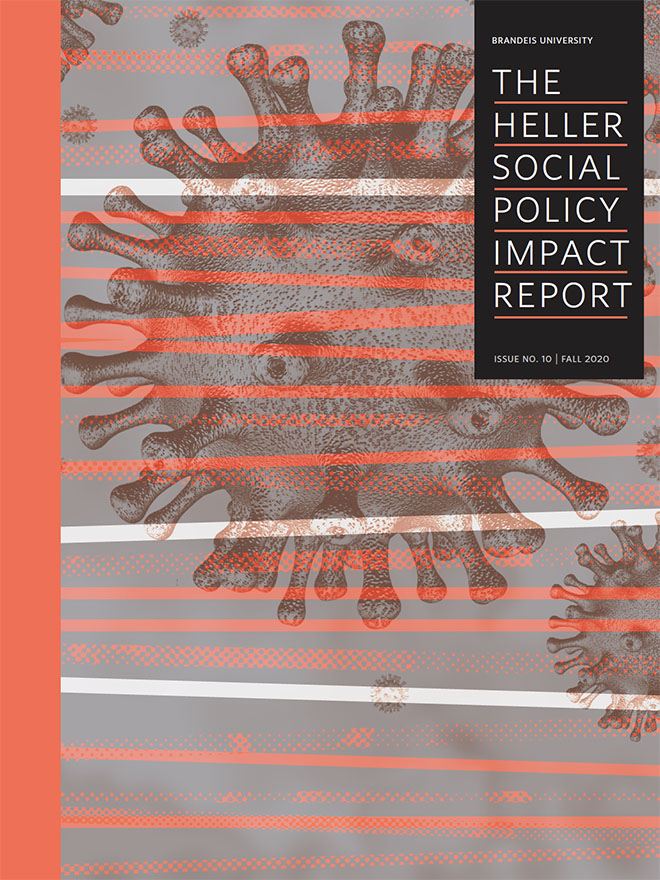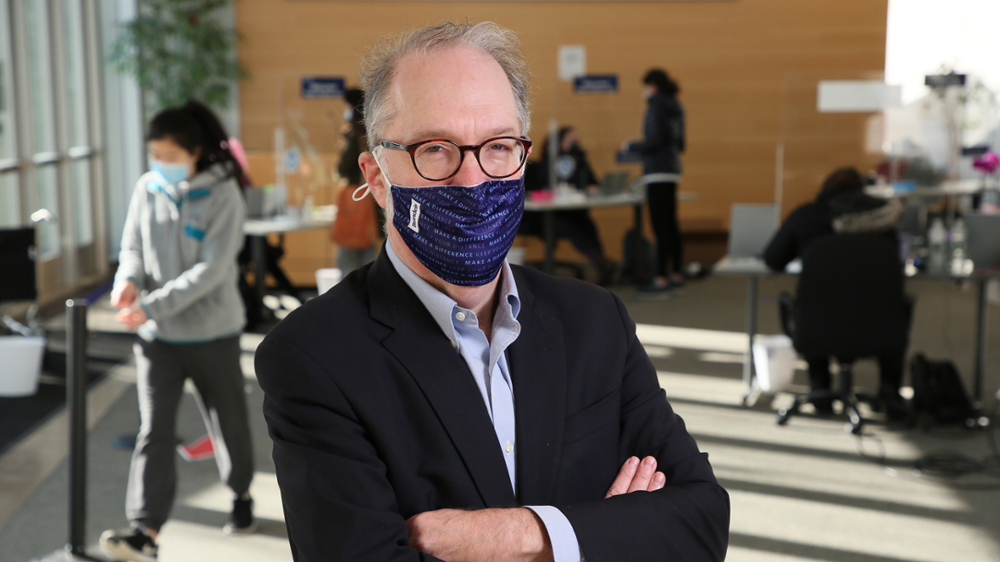
By David Weil, Dean and Professor
For the Heller School, as elsewhere, 2020 has been the year of the quintuple pandemic: COVID-19, the associated economic recession, urgent calls for racial justice, threats to U.S. democracy, and the continuing impact of global climate change. As a school of social policy, and one that aspires to the motto “knowledge advancing social justice,” I believe it is our responsibility to engage with these issues and to respond with every tool we have.
We all know this year will go down in the history books. At this inflection point we must ask ourselves, in the words of Rabbi Hillel: If not now, when?
On March 18th, Lynn Davis, Ravi Lakshmikanthan and I walked the floors of the Heller School together, checking each office and classroom for stragglers and making sure the building—our collective home away from home—was empty. Then we locked the doors and went home for what we all thought might be a few weeks, or at most, a month. It was eerie, even surreal, to see the building so vacant at a time when it would normally be a bustling center of activity.
Like everywhere else, Heller changed its course practically overnight. Within the span of a single week, all courses were moved online, and our 200-plus faculty, staff and researchers moved all of their work to the digital space. Anyone who has experience in higher education knows that agility is rarely considered an industry strength. And yet, we moved at lightning speed to adapt our high-touch academic model to this new normal: our kitchen tables became offices and classrooms, researchers began applying their expertise to the pandemic and its fallout. Everything, from team meetings to Commencement, moved to Zoom.
Shortly after the dust settled, it became clear that COVID-19 would be with us through the summer, and then the fall. We had some time to plan our approach, but it never felt like enough. In concert with leadership teams across the university, we made the fraught decision to move forward with mostly online instruction at Heller. Zinner Forum became one of Brandeis’ two asymptomatic testing sites, processing over 500 nasal swab tests a day throughout the fall semester. We developed a system for people to use the Heller building if they were unable to work or study at home. When the weather permitted, I held a few socially distant lunches with students under large outdoor tents set up across campus.
Our faculty took on the monumental task to not only adopt a new technology, but completely redesign their courses and pedagogy for online learning. Those with online teaching experience—particularly faculty from our Executive MBA for Physicians program—and experts from Brandeis’ Center for Teaching and Learning provided coaching and shared innovative techniques. Above all, our faculty supported one another as colleagues through mentorship and teaching teams.
This year has been hard, to be sure, but I want to celebrate just how successful our efforts have been. At the time of this writing, we are closing the fall semester in relatively good shape. Our first-year students are engaged with their coursework—producing excellent work (as always) and giving us motivation to carry on. Students in their second year and beyond are feeling the cumulative Zoom burnout of two semesters rather than one, but they are hanging in there and remain engaged. We’re constantly adjusting and tweaking our approach, making improvements in real time whenever we can.
The result of this collective work is that Heller and Brandeis were able to conclude the fall semester as planned. Our COVID-19 positivity rates stayed far below the state and local level, and below the levels experienced at other higher education institutions in the Boston area. This pandemic is far from over, but I am hopeful that our ongoing commitment to communication, transparency, equity and above all, safety, will continue to bear fruit.
This year, too, the vivid and horrific deaths of George Floyd, Breonna Taylor (and too many other Black and brown people) and the inspiring Black Lives Matter social movement have further illustrated the enormous challenges our society faces in moving towards greater racial justice. COVID-19 has disproportionately hit communities of color, in terms of exposure to workplace risks, experiencing community economic distress, facing adverse health outcomes, and bearing the brunt of climate change. Taken together, these developments once again lay bare the deep roots of racism in our social structures.
As a school and university, we are redoubling our attention to the issue of systemic racism within our own institution. At Heller, we continue to build on the efforts undertaken in the last four years under the incredible leadership of Associate Dean Maria Madison. We have come a long way, but we have a long way to go. We remain committed to the work and to tracking our progress.
The admissions cycle this year was more challenging than most. Even despite headwinds, this fall we had our largest MPP and Social Impact MBA classes in Heller history.
Admissions proved particularly challenging for prospective international students, most of whom faced travel restrictions or were unable to obtain student visas in time to enroll this year. As U.S. embassies reopen (under a new presidential administration), and with the COVID-19 vaccine starting to be delivered, we are optimistic that we will welcome a robust cohort of international students again in fall 2021.
For our centers and institutes, all research continues to operate entirely remotely. We were initially concerned about the impact that 100% remote work might have on our productivity and ability to collaborate, and especially on the arduous work of starting and funding new projects. Our concerns proved unfounded. Heller researchers and support staff have stepped up to the challenge, and then some. To get a sense of our incredible efforts in this area, I direct you to the redesigned 2020 Heller Social Policy Impact Report which published in late fall.
Almost half of Heller’s budget comes from sponsored research, and I am happy to say that our research activity grows stronger every year—including this one. In fiscal year 2020 we submitted an amazing 166 proposals and had over 190 funded projects representing a diverse, exciting, and increasingly cross-cutting research portfolio. We punch above our weight: 28% of all Brandeis research funding comes from Heller, even though we account for less than 10% of Brandeis’s faculty and research staff.
The road ahead: If not now, when?
The past four years have been challenging in so many ways. In virtually every area of social policy that we study—health, poverty, international development, social conflict, earnings and asset inequality, workplace conditions—we have faced fierce headwinds. And we have endured a political environment that has challenged the underlying notions on which Brandeis and Heller were founded.
The social policy concerns facing the U.S. and around the world will remain daunting for some time. Yet the discovery of COVID-19 vaccines and treatments and the impacts of a new presidential administration provide grounds for optimism in terms of public health and economic recovery and the beginning of healing from the deep social and political divisions we have experienced. For Heller, that means improving admissions, research funding, opportunities to engage in policy arenas in the areas of our expertise, and a climate that embraces inclusion and diversity and for our domestic and international students.
Throughout this year-long journey I have often invoked the famous words of Rabbi Hillel: “If I am not for myself, who will be for me? If I am only for myself, what am I? If not now, when?” (Pirke Avot 1:14) The final line fits this moment for all of us who care about social justice: If not now, when?
All year, I have seen this moment as a time for Heller to step up, not step back. As social policy scholars, it is not only what we do, but it is our responsibility. This responsibility touches our research, academic mission, engagement and operations. We must be ready to do the work of social policy—of knowledge advancing social justice—more than ever.

